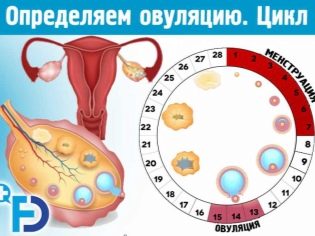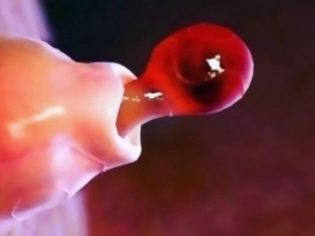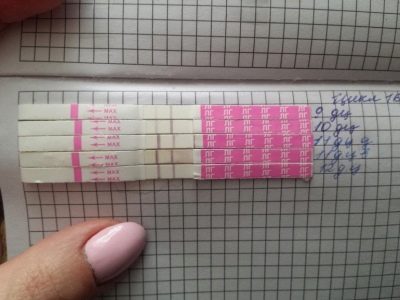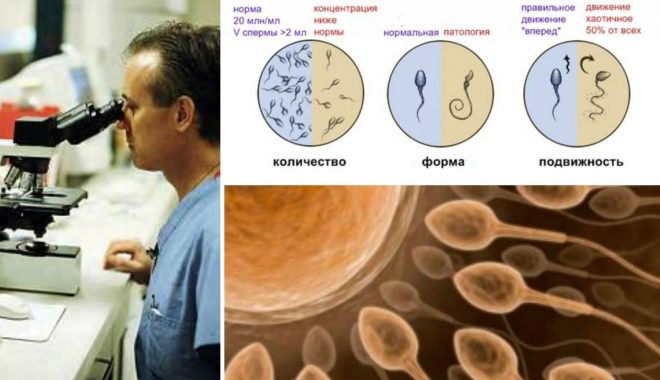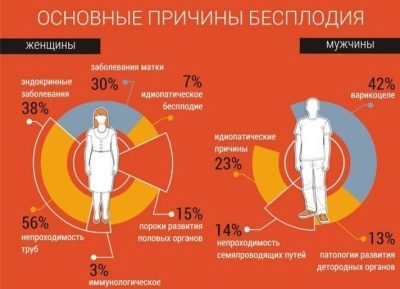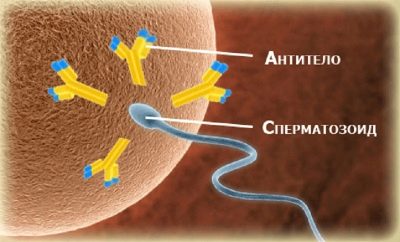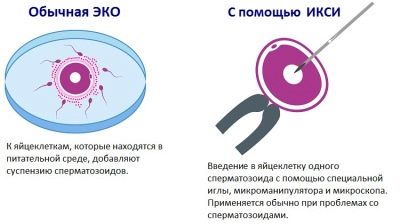Why is it not always possible to get pregnant in ovulation?
When a couple begins to plan the conception of a baby, the first few unsuccessful attempts can cause a lot of questions - why pregnancy does not occur, because partners are trying to conduct sexual acts during this very, most fertile female period. In fact, this is a normal situation, the causes of which can be quite natural. But pathological prerequisites are not excluded.
General information
Ovulation is a short period of the female menstrual cycle, when a ripe egg leaves the dominant follicle into the fallopian tube. A set of germ cells in an immature state in girls is available even when the baby is in the womb. Then, during the life of the oocytes of the first order dies, and some - is spent on ensuring the cyclical nature of the female body. Each month one (rarely - more) follicles mature, which break up in the middle of the cycle under the action of hormones, releasing an oocyte, ready for fertilization by a sperm cell.
Ovulation lasts about an hour, and then during the day the egg cell retains the ability to be fertilized.
If there is no meeting with the male reproductive cell during this day, the oocyte dies, descends into the uterus and comes out with menstrual bleeding along with endometrial particles that have grown under the action of progesterone in the second phase of the female cycle in anticipation of a fertilized egg.
Female fertility (the ability to reproduce) is largely due to the ovulatory process, and the probability of conceiving a child on the days of ovulation is maximum. But the maximum is not 100%. According to the WHO, female fertility during ovulation depends on age, its greatest importance is no more than 33% for women under 25 years old, no more than 25% for women under 30 years old. Reproductive experts claim that these figures are somewhat overestimated, and the real probability of conceiving a child from the first time in one cycle in healthy women and men does not exceed 11% at the age of 20-25. Naturally, after 35 years the probability does not exceed 4-7%, and after 40 years - 3%.
This is due to the deterioration of the genetic material of the germ cells of a woman, and if the age partner, then the germ cells in him of excellent quality, most likely do not differ. The statistics is not a reason to worry. About 60% of married couples quite safely become pregnant for six months, another 30% of couples see positive results of the pregnancy test during the year.
In about 25% of cases, even if sexual intercourse was carried out precisely during the fertile window, conception does not occur, and the reasons for this to geneticists and doctors have not yet been established. In addition, in almost half of cases of marital infertility, the decisive role is played by the poor quality of the sperm.
Conditions of successful conception
To find the answer to the question of why a woman does not manage to get pregnant in ovulation by the first or second baby, you need to make sure that the couple is right in planning and that they comply with all the conditions for successful conception.
Woman has an ovulation
The fact is that every woman has “empty” anovulatory cycles in the course of her life. The older a woman becomes, the greater the number of such cycles per year (compare - in 20 years of anovulatory cycles, it is normally 1-2 per year, and at 35 years old - up to 5-6).Ovulation can also occur late or start earlier, and stress, a cold, a trip, or a flight can trigger such a scenario.
In order to answer the question, does the egg come out at all, you can use Home-made ovulation tests: when they show two bars - it's time to take action.
Accuracy of home tests below laboratory tests, and you can visit a doctor to do Ultrasound of the ovaries on the 5-6 day cycle immediately after menstruation. And closer to the middle of the cycle You can do a blood test for luteinizing hormone. His sharp jump indicates the approach of ovulation.
A man is healthy and capable of conceiving
A simple analysis - spermogram can significantly reduce the time and nerve costs when planning a baby. If the quality of the male sexual cells leaves much to be desired, the probability of fertilization is significantly reduced, and the risk of conceiving a child with genetic abnormalities and chromosomal errors increases.
In this case, you first need to improve the quality of sperm, taking vitamins, giving up bad habits, visits to the bath and sauna. And only after three months (spermatogenesis lasts so much) start the exciting process of “capturing” ovulation.
Sex acts occur during the fertile window.
Spermatozoa live longer than the egg (up to 3-4 days), they are quite capable of “waiting” for the egg to leave in the fallopian tube, and therefore it is recommended to begin having sex 3-4 days before ovulation and do it every other day until 2-3 days after ovulationby refusing to use contraception, douching, and lubricant lubricants.
With moderate frequency of sexual intercourse, male sperm will be of optimal quality, which will help to conceive a baby faster.
The couple is in the right psychological state.
Any stress increases the production of stress hormones, which partially block the production of sex hormones. That is why it is often impossible to get pregnant, even if the sperm is of normal quality and ovulation is. Doctors have long noticed that Fastest conception occurs in the first year of a couple's life together, while feelings are fresh. If you turn sexual acts into a sports attraction for the sole purpose of conceiving, the probability of successful conception is reduced.
A woman who every month with trepidation waits for two stripes on the test, cannot be distracted by anything else, switch, is in a state of chronic stress, and the probability of conception becomes several orders of magnitude lower.
If it did not work out in this cycle, nothing terrible happened, it will turn out later - only this approach provides a calm and harmonious state for the fair sex.
Possible reasons for the absence of conception
A variety of factors can affect the ability of the male and female cells to merge, and not all of them have been studied in detail by doctors and scientists. But those who are known are quite enough to understand that conception is a delicate matter.
The point is mainly in the health status of partners. The woman's probability of conception reduces not only age, but also bad habits, living in areas with adverse environmental factors, working at night, professional contact with radiation, paints and varnishes, toxins. And even if there is ovulation, it’s not at all a fact that the oocyte will be of good quality and fertilization will succeed.
The male fertility factor can be affected by the habit of wearing tight underwear and pants that interfere with blood circulation in the scrotum and increase its temperature. The habit of soaring in the bath, including the car heated seats also affects the quality of sperm.
We have no idea how many conceptions in our life we all missed! After all, sometimes the pregnancy "breaks" at the very initial stage - the ovum cannot descend into the uterus, implantation does not occur, because of a genetic error, it stops developing and growing and dies. In this case, come monthly, perhaps with a slight delay. And the woman will never know that conception did take place.
The reason for the absence of pregnancy with strict adherence to the rules of successful conception can be any gynecological pathology - obstruction of the fallopian tubes, inflammation of the uterus, ovarian dysfunction. Often, doctors diagnose and hormonal infertility, in which the level of hormones in the female body does not allow her to be pregnant (lack of progesterone, estrogen). Often, even ovulation does not occur, and if it happens, the level of natural hormonal support may not be sufficient to ensure the survival of the embryo in the very first days after conception.
In men, the cause may be hiding in varicocele, prostatitis, in genital infections, many of which occur without pronounced symptoms, and therefore can not be immediately noticed by the carrier.
Both partners can have a viral illness, a cold, before ovulation, which also significantly reduces the quality of germ cells and reduces the likelihood of conception.
We should also tell about antisperm antibodies, which are produced by the immunity of a man or a woman. Immune protection simply perceives spermatozoa as alien objects, and throws all forces at their earliest destruction. At the same time, sperm cells die in the man’s body if he has anti-sperm antibodies, or they die without reaching the egg cell, if such immune cells are produced by the woman.
Immunity may respond to sperm for several reasons. For example, a man underwent surgery on the genitals, there was an injury, contusion of the genitals, and individual germ cells, having gotten in the wrong place where they were supposed to be, caused an aggressive reaction of the immune system. In women, this form of infertility develops due to overuse of anal sex with ejaculation in the rectum, as well as swallowing sperm during oral contact. It is one of the most difficult to treat types of infertility.
What to do?
Whatever your ideas about your own fertility, it is best to start planning a pregnancy with a trip to the doctor. A woman needs to be examined by a gynecologist, put her own weight in order (even losing weight by 5% of the initial body weight increases the likelihood of conception). A man is also important to pay attention to your diet, bad habits and make spermogram.
A simple and quick examination will allow the couple to more constructively plan the addition to the family, to know exactly the "weak" sides of each other. At once we will say that there are almost no insurmountable situations. Even if any deviations are revealed, in 96% of cases, after properly selected treatment, the problem is eliminated, and the couple can begin to successfully plan the baby.
The remaining 3% of couples will be helped by methods of assisted reproductive medicine - IVF, ICSI, donation of eggs, spermatozoa. Today, most reproductive medicine services are provided free of charge, according to the mandatory medical insurance policy.
Before you start tracking ovulation and planning conception, you need to carry out some training. The majority of couples, according to reviews, took 2-3 months to follow simple recommendations and thereby increase their chances of becoming parents:
- Both partners must lead a healthy lifestyle, take vitamins with a predominant content of zinc, selenium, magnesium and folic acid;
- all diseases and infections should be treated in advance, after taking antibiotics, anti-inflammatory drugs, painkillers, antifungals, before the start of planning it should take at least 1-2 months;
- partners should be balanced, any weight loss diets are contraindicated, and milk, meat, fish, greens, vegetables and fruits must be included in the diet. From coffee and strong tea, and at the same time from dark chocolate, it is important to give it up to a woman.
Sometimes you may need a trip to genetics. This is done in the event that no objective reasons for infertility have been identified by any of the partners, and the conception still does not occur. The reason may lie in genetic incompatibility, if the male genome is very similar to the female genome. It is also recommended to visit genetics for spouses who have had cases of severe congenital diseases and syndromes.
Hike to the psychotherapist is inevitable with psychogenic infertility, when the reason lies in severe stress, worries, fears. After eliminating these feelings, the couple usually succeeds in conceiving a baby without any problems.
About ovulation and how to get pregnant, see the next video.


